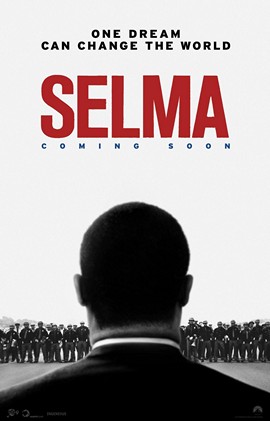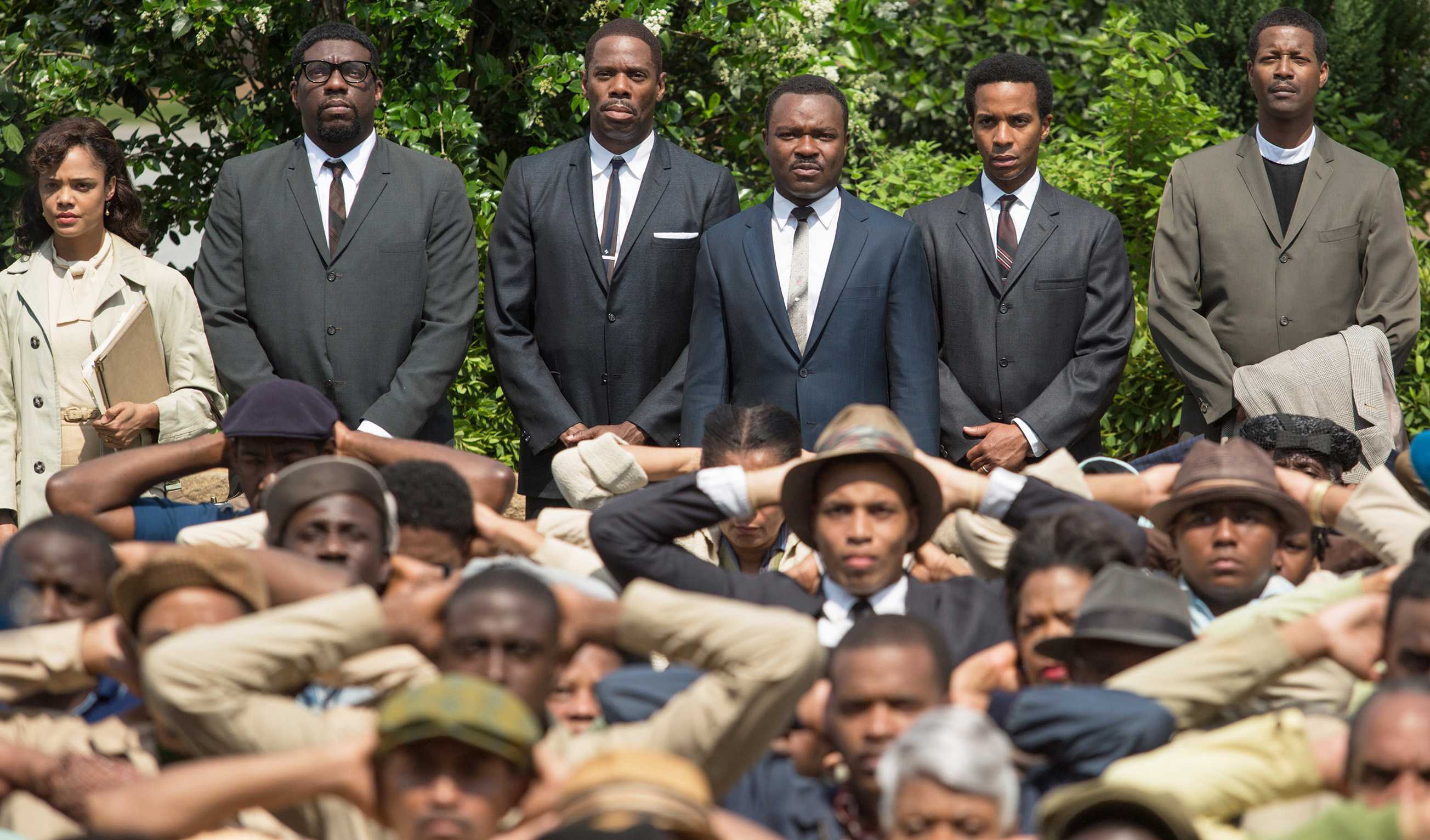To be concise, “Selma” lives up to its hype.

The somber historical drama film “Selma,” directed by Ava DuVernay, focuses on Martin Luther King Jr. (David Oyelowo) as he and the Southern Christian Leadership Conference, an African American civil rights organization, plan a peaceful 54-mile march from Selma to Montgomery, Alabama, to fight for the uninhibited right to vote in 1965. While African Americans were technically allowed to vote at the time, a number of unnecessary obstacles were still in place that prevented them from registering, particularly in the South. Because this film is set after King’s iconic 1963 “I Have a Dream” speech, it is able to focus on more than what most people already know about King and his legacy, which I thought was an interesting and appropriate choice.
Even with its notable historical significance, “Selma” is fortunately able to stray away from the vibe of an educational film with its quality acting and its ability to evoke the right emotions. In particular, Oyelowo’s portrayal of King is superb, taking on the multiple facets of King as an orator, a source of inspiration and a man who holds an unwavering belief in God and in the right of African Americans to be truly free. Perhaps the most compelling dimension that Oyelowo takes on is that of King as merely a human being. Behind King’s aura of influence was a man who was indeed imperfect, who did feel uncertain and weary at times, and the film explores that personal and intimate side of King through his relationship with his wife Coretta Scott King (Carmen Ejogo) and with fellow civil rights leaders. Although his character does not have some kind of quirky disposition that makes him endearing or intriguing like other Oscar nominees’ characters do, I’m frankly rather disappointed that Oyelowo isn’t up for an Academy Award for Best Actor.
While “Selma” does have a few uplifting, more lighthearted moments, it is far from a feel-good film with its emotionally charged and suspenseful scenes, especially those surrounding the horrifying instances of violence and police brutality before and during the marches. Most importantly though, the tone and indirect message of the film are what resonated with me most after watching. Despite it being set half a century ago, the film not only makes you acknowledge how even today, King’s legacy is felt, but also highlights how these issues extend into the present. The song “Glory” by John Legend and Common, which plays during the end credits, emphasizes the continued struggle of racial inequality, connecting the peaceful protests of the Civil Rights Movement to the recent Ferguson protests. The song mirrors the nature of the film – sorrowful, but also quietly triumphant and even optimistic.

I still have a few points of criticism. I was a little saddened by how Coretta Scott King’s role as an activist seems to be downplayed in the film and how her role as a frightened housewife who struggles to deal with family issues and death threats is highlighted instead. It is also important to note that there is some dispute about the film’s historical accuracy, particularly concerning President Lyndon B. Johnson (Tom Wilkinson) and MLK’s relationship, which was actually more mutually respectful than depicted. My own attitude toward LBJ has not been significantly altered after watching “Selma,” but I can understand how some may take some offense to his seemingly unsupportive position in the film. It’s a bit unfortunate, but some artistic licensing is to be expected with any historical dramatization. After all, the film is an interpretation, not a work of nonfiction.
Ultimately, “Selma” most definitely does its job of giving depth to MLK as a person. More than that, though, it is an important film to watch not only because it provides a glimpse into the reality of the ’60s, but also because it shows just how much progress we have made since then – and how far we still have to go.
“Selma”
2 hours, 7 minutes
Rated PG-13 for disturbing thematic material including violence, a suggestive moment and brief strong language
Directed by Ava DuVernay
Starring David Oyelowo, Tom Wilkinson, Carmen Ejogo, Tim Roth, Oprah Winfrey
Oscar nominations: Best Picture and Best Original Song (for “Glory” by John Legend and Common)


